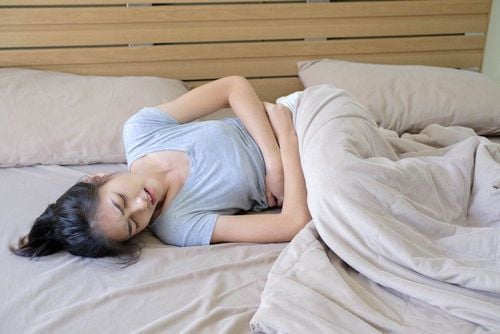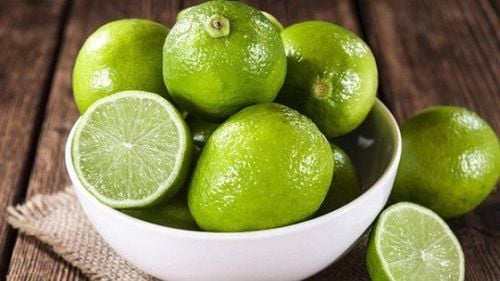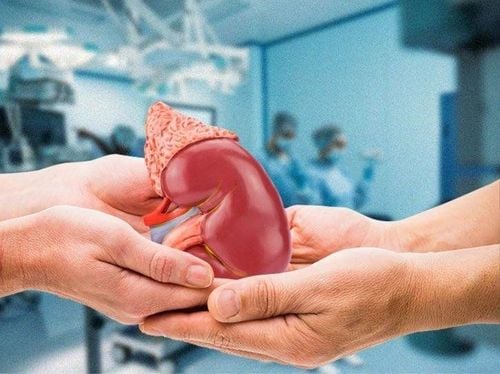Formed from the crystallization and deposition of minerals in the urine, when kidney stones appear, patients often experience pain, burning urination, and frequent urination, causing certain obstacles in daily routines. What size of kidney stones requires surgery, and are 8mm kidney stones dangerous?
1. What size of stone is needed for surgery?
When it first forms, the stone may be only the size of a grain of sand, at this time the patient does not have any abnormal signs. Only when there is pain or other health complications do the patient go for a check-up and kidney stones are discovered.
The size of the stone is calculated according to the measured diameter of the stone. In most cases, stones under 5 mm are considered small stones, these stones can be excreted by themselves in the urine stream. However, with stones larger than 5mm, the ability to excrete by themselves is almost very low, so the stone often remains in the kidney, ureter, bladder... this is also the time when the body begins to have symptoms. And the most common method to remove these large stones is surgery.
However, assessing the condition of kidney stones is not only based on the size but also on the location and shape of the stone. Therefore, in many cases, even though the stones are large, surgery is not required and conversely, there are cases where patients have small stones but need surgery.
2. How dangerous is an 8mm kidney stone to health?
An 8mm kidney stone is considered large in size, so if not treated early, it can cause some serious health problems such as:
2.1 Kidney stones cause urinary tract obstruction
With a size of 8mm, kidney stones are at risk of causing urinary tract obstruction. Because the stone will move with the flow of urine, when it falls from the kidney into the ureter and the stone can cause urine to stagnate, thereby causing urinary tract obstruction. At this time, the patient will have difficulty urinating or frequent urination.
2.2 Renal pelvis dilation
In some cases when the kidney stone is large, the stone will stay in the renal pelvis for a long time, the size of the stone will grow and cause renal pelvis dilation. This condition will reach a certain level, putting the patient in danger and at risk of rupture of the pelvis.
2.3 Urinary tract bleeding
Urinary tract bleeding is another common issue in people with kidney stones. If the stone is large and has a thorny shape, it will often cause friction in the urinary tract, at which time the patient will have urinary tract bleeding. At this time, when urinating, the urine will be mixed with blood.
2.4 Urinary tract infection
When the stone rubs, it will create scratches, which provide an opportunity for bacteria to attack and cause urinary tract inflammation. If the urinary tract inflammation persists, the patient will face many dangerous complications and need intervention to help improve the disease.
2.5 Kidney rupture
Kidney rupture occurs when the patient has multiple kidney stones. At this time, when the number of stones is large and numerous, they will put pressure on the kidneys. Over time, the patient will face many complications, the most dangerous of which is kidney rupture.
3. How to treat 8mm kidney stones?
In fact, depending on the medical condition, the size of the stone, and the patient's wishes, the doctor will have different instructions. In most cases, 8mm kidney stones require surgery or may be prescribed medical treatment combined with increased urine output to create pressure to push the stones out. Or more modern and popular is the method of endoscopic lithotripsy with a rigid endoscope, endoscopic retrograde lithotripsy with a flexible endoscope... In addition, patients with kidney stones are also advised by doctors to use additional diet and activities to improve their health.
You should drink plenty of water, 2-3 liters per day, so that the excretory system can function better.
You should eat a bland diet and avoid processed foods. Instead, you should eat a lot of fresh vegetables and fruits.
Foods rich in calcium, alcoholic beverages, and stimulants should be limited as much as possible.
You should not hold your urine, but should combine it with gentle exercises.
Kidney stones are a common disease in many subjects. The disease not only causes pain and discomfort but also seriously affects the patient's health and lifestyle. Therefore, to minimize the risk of disease, in addition to a healthy diet and adequate rest, patients should also proactively go for regular health check-ups. Early detection not only helps the treatment process to be simple and cost-effective, but also minimizes the effects on health.
Please dial HOTLINE for more information or register for an appointment HERE. Download MyVinmec app to make appointments faster and to manage your bookings easily.













